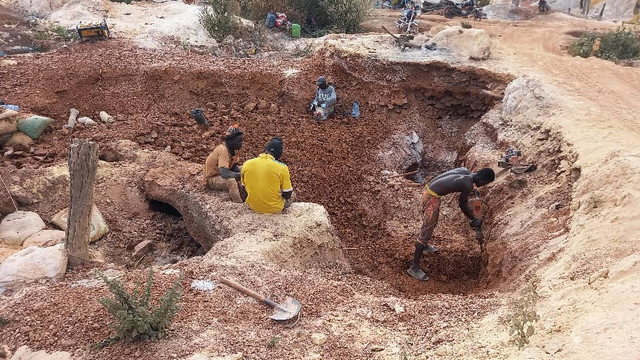Tomorrow in Brussels a meeting will be held of governments and multilateral organisations to discuss with the Malian government and civil society groups how best to help the country overcome its current crisis. The last year has seen the country shaken by invasion, coup d’état and finally the French and African military intervention to expel Islamic terror movements from the north of the country. This meeting represents a key moment to define a shared strategy, allowing the entire country to rebuild its commitment to peace, democracy and development.
For IRAM and IIED, a number of critical points mustn’t be forgotten in these discussions:
- Rebuilding trust
For many years Mali has drawn on a deep foundation of social cohesion and trust that has allowed the country to navigate a series of crises. But today, this social capital has been badly damaged. There is a loss of trust between people from the north and from the south, between different groups in the north, and between the State and populations in the north. A climate of confidence must be re-established to make long lasting peace a possibility. This could be achieved by means of a dialogue process, that would bring in each and every community to think through together how to rebuild development and peace. Donors need to support the government of Mali in this process, not only as a means to achieve reconciliation and peace, but also to open up discussion of the questions that divide as well as unite Mali’s people.
Holding presidential and legislative elections is essential to such a fundamental re-establishment of the democratic process. But for the elections to bring that greater confidence, and avoid further polarisation and disengagement, they must be held within a timeframe and under conditions that make it possible for all peoples to participate effectively. Such conditions are not self-evident today.
- Assessing and renewing the institutional structure
Despite the current crisis, Mali is not bereft of institutions, although some need renewal to allow them to operate effectively, given the challenges to be addressed. There is much that elected local government can offer, if renewed interest and investment is made, so that they can support development initiatives and meet the expectations and needs of citizens. However, that would require a clear-eyed assessment of its ability to ensure delivery of key services in a fair manner, and support both economic development and management of conflicts throughout the country, particularly in the north.
- Rethinking aid delivery
It is likely that significant funding will be pledged at tomorrow’s meeting in Brussels to help Mali place peace and development at the heart of government action. It should be remembered however, that despite some successes, development activity in the north in particular has achieved much less than hoped-for. Large amounts of aid have been spent without much result, and little improvement in people’s well-being. A new governance of aid needs to take root. Aid flows need to address real problems, linking both national policy and local structures, and ensuring that civil society scrutiny overcomes doubts about effective use of aid.
- Investing in appropriate development
As soon as security conditions allow it, both northern and southern Mali need significant economic, social and infrastructural investment, as part of a larger, widespread process of dialogue and coordination. In the north, alongside irrigated agriculture, a major focus is needed on support to the mobile pastoral livestock sector. Livestock are a major economic resource without which different northern peoples would have no sure basis for a prosperous future. Making the livestock sector more productive will greatly help the rebuilding of social relations between communities, and joined up management of land and natural resources, central to the maintenance of peaceful co-existence between different groups.
Today, some of the refugees who have taken shelter in Burkina Faso, are suffering heavy livestock losses. Rapid intervention to guarantee the survival of stock numbers will be needed to ensure these groups don’t suffer the total loss of their livestock wealth, without which they are condemned to deep impoverishment, from which it will be impossible to recover. This threat is real; without such livestock wealth and seeing their loss as a result of conflict and injustice meted out to them, such people, particularly young men, risk joining the ranks of extremist groups and putting back yet again the peace process.
- Taking a regional perspective
While Mali has been the main focus of attention in the last 12 months, many of the problems the country faces are similar to the Sahel region as a whole, such as rainfall variability and climate instability, the spread of narcotic trafficking and jihadist movements, and the deepening poverty underlying the prospects of so many people in rural and urban areas. At the same time, most of the difficulties facing Mali as a nation state will need the support of neighbouring countries, given the huge size and difficulty in policing frontiers. If Mali is to get full benefit from the River Niger, for example, it needs to coordinate investment in irrigation and hydro-power with other riverine states. If the narcotics trade is to be tackled and jihadist groups effectively controlled, a regional approach will be key. As a landlocked country, alongside Burkina Faso, Niger and Chad, Mali relies hugely on the infrastructural investments made by coastal neighbours. Finally, the threats from a more volatile climate will affect the region as a whole, so a wider approach to building resilience locally, nationally and regionally would make most sense.




